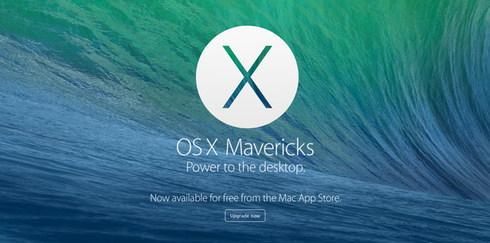
It's no secret that the cultural rebellion and anti-authority activism born in the '60s have long since been co-opted by corporate America, in particular the marketing wings of such, in an effort to sell more product by pandering to the consumer's sense of his or her own idealism and individualism. And it seems that no single company made a more powerful tool out of this kind of repackaging of rebellion than did Apple during its rise to mega prominence.
You can point to Steve Jobs being born into that era of idealism (and the particularly large chip he tended to carry on his shoulder) as the foundation of Apple's insistence on being branded the outsider in the world of personal electronics, and as such, the company for right-minded, rebellious consumers. Designers, musicians, creative-types on the periphery who were after something other than building a better spreadsheet. Apple had a vision of the world that included beauty, but more importantly, it was a vision that claimed to be the minorty view. Most people are content having crappy Windows and Office on their machines, just happy in getting by. These people don't really have the capacity to dream, or maybe they just lack the energy. Apple was for people with imagination. People with a unique gift. Or so the branding went.
And so the company went, led by the unstoppable Jobs, and people bought the message and lined up to buy iPods and iMacs and i[device]s in massive numbers to the extent that Apple is now the mother of all corporate juggernauts and can pretty much do whatever they want thanks to sheer muscular stature. They have more cash on hand than a number of third-world countries. They have an eager, affluent customer base that borders on rabid when new products are announced. Even though Jobs has passed away, the speed bumps that the company has faced since his death are essentially modest.
In the new millenium, after the rebranding of the company away from the rainbow apple of old, it seemed clear that the message had to become more subtle. But now here comes Mavericks. And the first question that comes to mind is would Jobs have ever allowed a new operating system in 2013 to be named Mavericks? Much of his marketing genius, it seems to me, lay in the fact that he always retained a very clear vision of the company persona and an understanding that that image dictated what he could and couldn't get away with. And so he found that what he didn't say was as vital as what he did. That he could create boiling-over demand for something by not explaining it in complete detail, by underplaying its awesomeness. Tim Cook seems not to have this skill about him.
Another way to say this is that Jobs had a way of making you feel cool and rebellious and ultimately part of a special, exclusive club (even if, in fact, a look at the hard numbers might blunt your feeling of being special) if you bought into what he was telling you, whereas Cook, and his lieutenants, seem not to move beyond the surface of the message. I mean, Mavericks is ostensibly about favorite California locales or something like that. Fine, but kicking off this OS name shift away from the medium to large-sized cat family to Cali vacay destinations with a place and name that so clunkily seeks to gratify your customers' sense of rebellion inspires only disappointment. It's weak. And it underscores the fact that Cook isn't the creative genius that Jobs was--which fine, who is--but worse, that he doesn't even have his own thing going on. He just went for the very easy, almost default option of, Okay, let's rebrand this thing…what's the coolest, most rad, name that we can come up with that like gets kids stoked and stuff?
Jobs didn't choose the whole cat family name thing by accident. Yes the positive connotations of speed and power and God-given beauty, etc. but also far enough away from both the code-crunching and geekdom of computing and, significantly, the marketing direction of the past that emphasized individualism. Jobs realized that he could no longer credibly claim outsider status nor that he needed to. It was enough now to have the brand represent the pinnacle of function AND form, that the creative spirit was already firmly entrenched in his customer's understanding of what Apple was--the genius outsider who was now the leader in the game. Again, Cook seems not to understand this about his own company, which, at least to me, is a shocker. Maybe the name tested well, but it shows no creative vision on the part of the current leadership, and almost, almost suggests even a little bit of Cupertinian panic.
